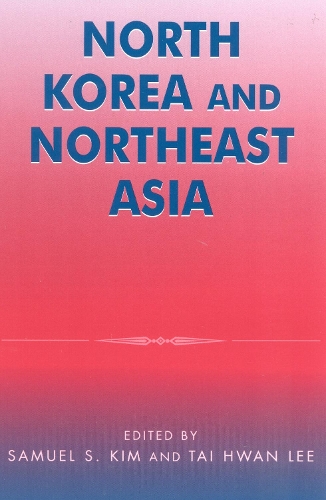
North Korea and Northeast Asia
(Paperback)
Publishing Details
North Korea and Northeast Asia
By (Author) Samuel S. Kim
Edited by Tai Hwan Lee
Contributions by Victor D. Cha
Contributions by C S. Eliot Kang
Contributions by Myonwoo Lee
Contributions by Robert A. Manning
Contributions by Marcus Noland
Contributions by Elizabeth Wishnick
Bloomsbury Publishing PLC
Rowman & Littlefield Publishers
9th October 2002
United States
Classifications
Tertiary Education
Non Fiction
327.5193
Physical Properties
Paperback
304
Width 147mm, Height 229mm, Spine 16mm
386g
Description
A country of stark contradictions and puzzles, North Korea exhibits uncanny resilience in the face of external shocks and internal woes, raising important questions of theoretical and real-world significance. What has made it possible for North Korea to defy the classical realist axiom, "The strong do what they have the power to do and the weak accept what they have to accept" What is the nature of the North Korean threat in post-Cold War Northeast Asia What kind of bargaining leverage does Pyongyang exercise in system-maintaining survival strategies What are North Korea's prospects for sustaining such survival strategies in the uncertain years ahead
This volume offers a major reappraisal of the changing relationship between North Korea and its neighboring powers in the post-Cold War era in both theoretical and practical terms. The contributors examine the complex interplay of global, regional, and national forces that have influenced and shaped the changing patterns of conflict and cooperation in North Korea's relationships with China, Russia, and Japan and with the United States. Within the context of Northeast Asian geopolitics, the book tracks, explains, and assesses North Korea's survival strategies in both the security and economic domains, as well as the prospects of these strategies in the coming years.
Reviews
[A]n instructive and thorough overview of North Korea's 'system-maintaining survival strategies' and 'uncanny resilience'. . . . In particular, the major players of the political landscape in Northeast Asia are skillfully sketched. * Journal of Asian Studies *
The articles in this book develop new perspectives on the North Korean nuclear and missile problems at a time when these issues have become global concerns. However, in addition to new perspectives, a willingness to analyze North Korea as it is seems necessary to overcome the current lack of understanding regarding this country. * Pacific Affairs *
This is one of the best books to deal with current North Korean issues. It is to be recommended to all who are interested in this reclusive yet important country. * School Of Oriental and African Studies *
The volume is timely and richly detailed. It is well-written and contains a useful bibliography. * Choice Reviews *
Author Bio
Samuel S. Kim teaches in the Department of Political Science and is a senior research scholar at the East Asian Institute, Columbia University. Tai Hwan Lee is director of the regional studies program and former director of foreign policy and security studies at the Sejong Institute, Seoul.
